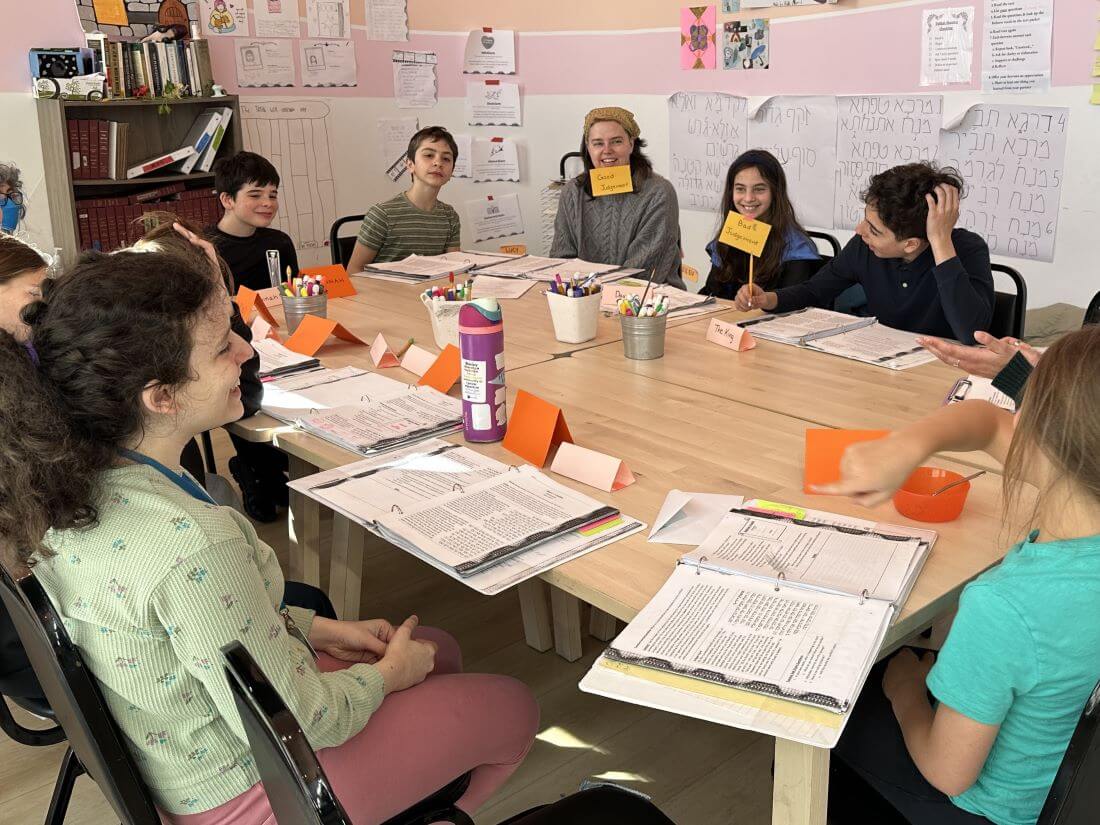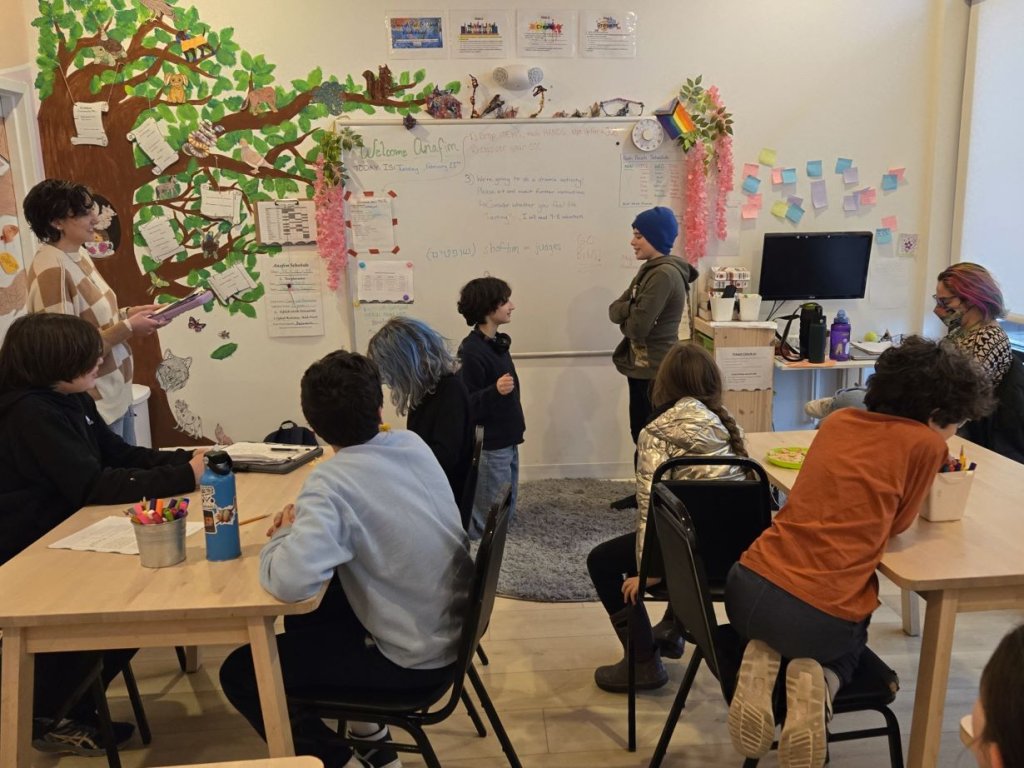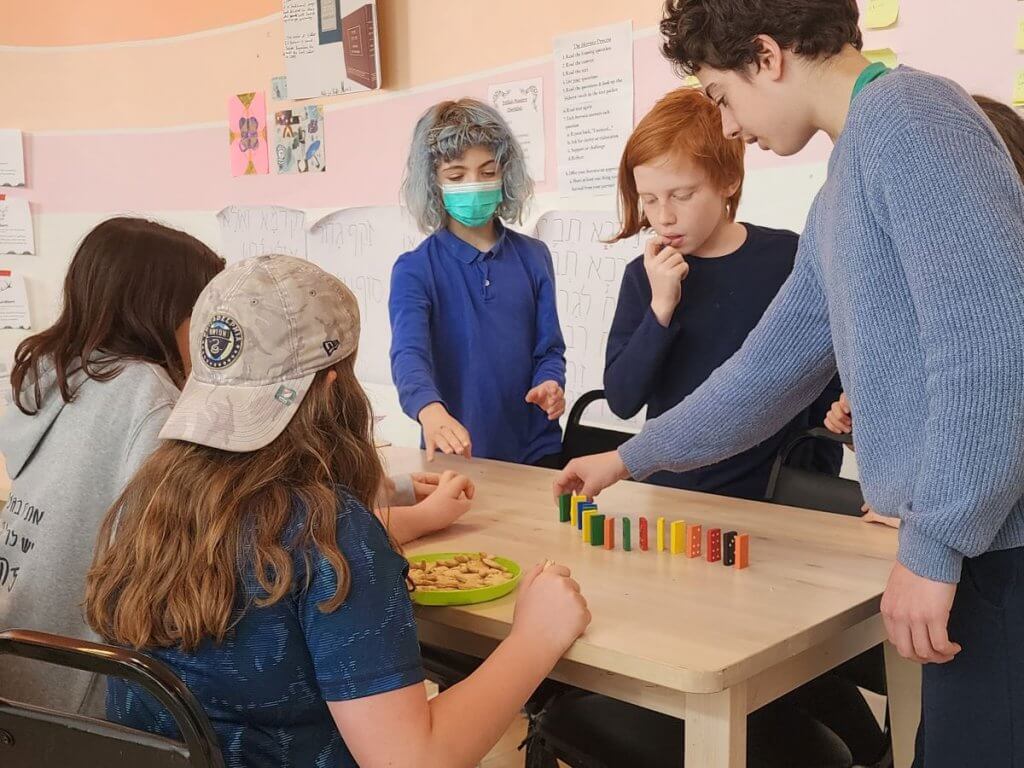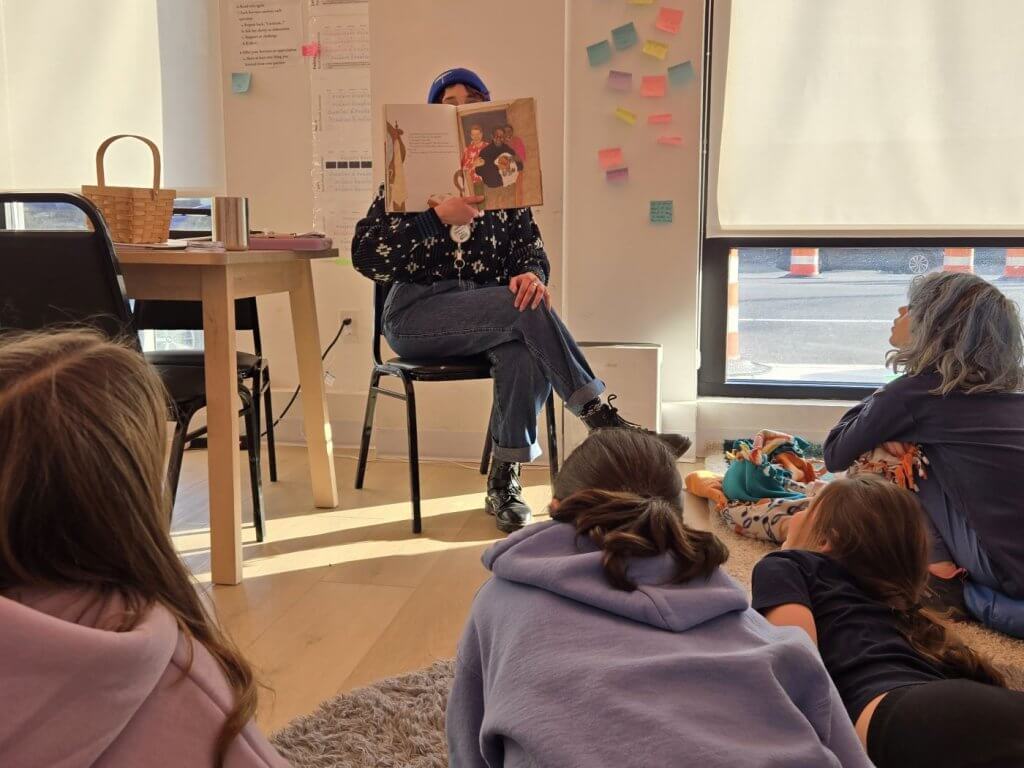
Women of TaNaKh are often overshadowed by their spouses and male counterparts. It’s difficult to find text that focuses on female narratives, but that makes it all the more necessary to do so. Why? Aside from the obvious need for egalitarian study, exploring female-focused narratives offers us different lessons, perspectives, and biases to consider critically. For the third unit of the year, the Anafim (5th-7th grade) have been close-reading and examining the stories of the seven prophetesses: Devorah, Sarah, Channah, Esther, Avigail, Chuldah, and Miriam. We hoped that by exploring these texts, Anafim learners would access conversations and notions that might have been neglected otherwise. And the prophetesses’ wisdom did exactly that!

In our examination of Sarah’s narrative, we read a midrash about her point of view during the incident of akeidat Yitzchak (the binding of Isaac). While Avraham was quick to carry out God’s will verbatim and sacrifice his son, Yitzchak, Sarah outright refused. When I asked the learners who had passed God’s test, they unanimously named Sarah. When I asked them what the test was for, many of them said loyalty, but then couldn’t explain how Sarah was being loyal to God here. Eventually, one learner identified this as a test of trust in God and not of loyalty to God. In other words, Sarah knew that God didn’t want Yitzchak to be harmed. She knew it was a test and to trust her intuition. This alone is an expression of her prophetic ability and wisdom.
When reading Avigail’s story, we closely examined her motivations. She intervenes in a conflict between King David and her husband, Naval, in which David decides to kill Naval in retaliation for his rudeness. The text makes it clear that Avigail doesn’t care for Naval, so the Anafim learners were interested in understanding why she protects him. Some learners took notice of the gender roles in Avigail’s marriage, especially given the context of biblical times. One kid said, “Avigail feels obligated to clean up her husband’s mess” because she’s been socialized to carry that responsibility. After Avigail’s intervention, God smites Naval, and David swoops in to take Avigail as his wife. The kids had a lot of trouble with the verb “take”, as even the Hebrew text translates accordingly. They said it suggests an objectification of Avigail as a wife, as though she is an item up for purchase, and called this out for being demeaning. Similarly, Avigail accepts David’s proposal by saying, “Your handmaid is ready to be your maidservant, to wash the feet of my lord’s servants” (I Samuel 25:41). The Anafim learners noticed an inherent tension between the language Avigail uses, which conveys subservience, and Avigail’s clear intention to manipulate the situation to get what she wants out of it: marrying David. In other words, the kids recognized the complexity of Avigail’s manipulation of David’s expectations of her as a woman. She took advantage of those expectations and placated him by creating an illusion that he was in control when in fact, she was curating the outcome she desired most.

At the end of the unit we studied the text of Chuldah, who provides a prophecy to the king at the time, assuring the destruction of Yerushalayim. While Chuldah is hardly present in the text, rabbinic scholars still have much to say about her. They argued that the king’s scribes and ministers consulted her specifically because women tend to be more compassionate than men. Similarly, Rabbi Nahman describes Chuldah and Devorah as arrogant because they talk down to authoritative men. This prompted energetic discourse amongst Anafim about the expectations placed upon people based on their gender and the double standards that accompany this. Learners ascertained that assuming women are more compassionate than men is not, in fact, harmful. They attributed this to women often being socialized as caretakers. However, in contrast, they discerned that the assumption that men are less likely to be compassionate is harmful. The kids identified this perspective as bullying as it deters men from expressing compassion. This led us to a conversation about gender as a concept. Kids reflected that gender shouldn’t have an impact on how we’re treated, aside from asking people to refer to us according to our preference.
Overall, this unit taught me a great deal about the awareness these kids have of sexism, gender, and the complexity of wisdom. I think the learners’ takeaways were very much the same—they became aware of how much there is to learn and understand regarding these topics. Even after spending several months unpacking these texts, I feel we’ve only scratched the surface of what they have to offer. This concentration of texts has instilled these learners with a newfound respect for what these prophetesses can teach us about bias, societal expectations, justice, and wisdom. They give us much to reflect on: which featured perspectives do we want to adopt and which do we want to leave on the page?

